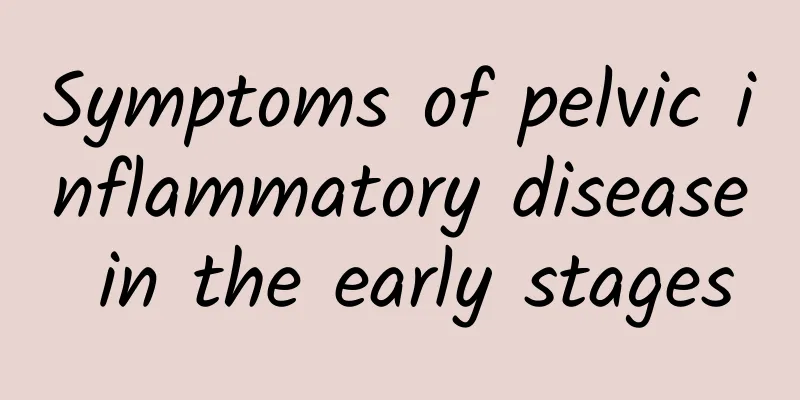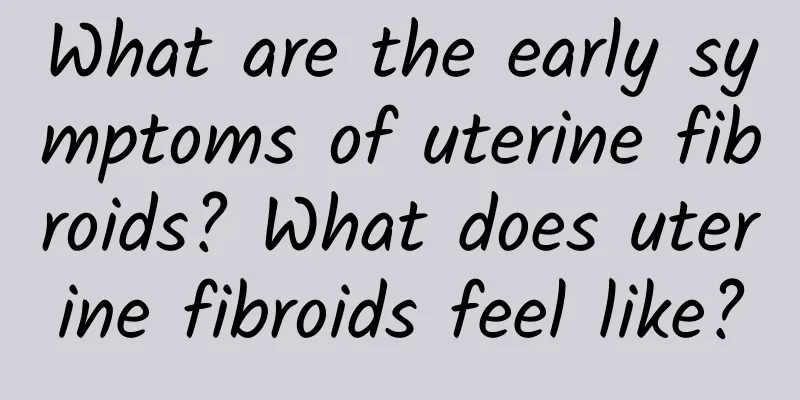What are the symptoms of left ovarian cyst?

|
There are many kinds of gynecological diseases, and the symptoms they manifest are also varied. Some disease symptoms are also very similar. Left ovarian cyst is also a kind of gynecological disease. So, are there many symptoms of left ovarian cyst? What are the symptoms? Ovarian cysts have no obvious clinical manifestations in the early stages, and patients are often found only during gynecological examinations when they seek medical treatment for other diseases. Later, as the tumor grows, patients begin to feel it, and the symptoms and signs vary depending on the nature, size, development, and presence or absence of secondary degeneration or complications of the tumor. Common symptoms can be divided into the following categories: Symptom 1: Low back pain. If the tumor has no complications, there is very little pain. Patients with ovarian tumors feel abdominal pain, especially when it occurs suddenly, which is often caused by the twisting of the tumor pedicle, or occasionally by tumor rupture, bleeding or infection. Malignant cysts often cause abdominal pain and leg pain, and the pain often causes patients to seek emergency treatment. Symptom 2: There are compression symptoms. Huge ovarian cysts can cause dyspnea and palpitations due to compression of the diaphragm. Ovarian cysts combined with a large amount of ascites can also cause these symptoms; but some patients with ovarian cysts have dyspnea caused by unilateral or bilateral pleural effusion, and are often combined with ascites. Symptom three: Menstrual disorders. Some uterine bleeding is not endocrine, but may be caused by ovarian tumors that change the pelvic blood vessels, causing endometrial congestion; or by ovarian malignant tumors that directly metastasize to the endometrium. Menstrual disorders caused by endocrine tumors are often combined with other secretory effects. Symptom 4: Increased abdominal circumference and abdominal swelling. This is the most common phenomenon in the main complaint. The patient finds that his clothes or belt seem too tight, and then he notices that his abdomen is enlarged, or he feels it accidentally in the morning, so he presses his abdomen and finds that there is a mass in the abdomen, plus abdominal distension and discomfort. |
<<: Can endometriosis cause infertility? What are the main causes?
>>: Is adenomyosis a serious disease?
Recommend
What are the symptoms of uterine fibroids?
Symptoms of uterine fibroids include menstrual ab...
Women must take these 4 measures to prevent habitual miscarriage
For women, if they want to effectively prevent ha...
Eat less meat during the Chinese New Year and choose the 5 principles of food carefully
Chinese New Year is a big day for family reunion....
Get rid of obesity and fatigue! 4 Anti-Inflammatory Nutrients from Bio-Bio
Inflammation is the fire of obesity! Once the bod...
What should menopausal women pay attention to in food?
Physiological menopause is a normal phenomenon, b...
What causes secondary peritonitis?
The main cause of secondary pelvic peritonitis is...
How to treat uterine fibroids better? Surgical treatment of uterine fibroids
Uterine fibroids are a common gynecological disea...
Can I get pregnant with severe cervical erosion?
Basically, every disease is divided into several ...
What symptoms are considered serious for pelvic effusion?
If pelvic effusion is accompanied by persistent l...
Zero cellulite challenge! Leg and buttocks KO
The amount of cellulite produced varies depending...
Long-term use of drugs can cause irregular menstruation
Menstruation is an external manifestation of the ...
What should you pay attention to in preventing threatened abortion?
The harm of threatened abortion is so great. What...
Can I still get pregnant after a miscarriage without a uterine curettage?
Can I still get pregnant after a miscarriage with...
What are the symptoms of chronic adnexitis?
Everyone has heard of chronic adnexitis. But how ...
Can uterine fibroids affect life expectancy?
Will women's uterine fibroids endanger their ...









